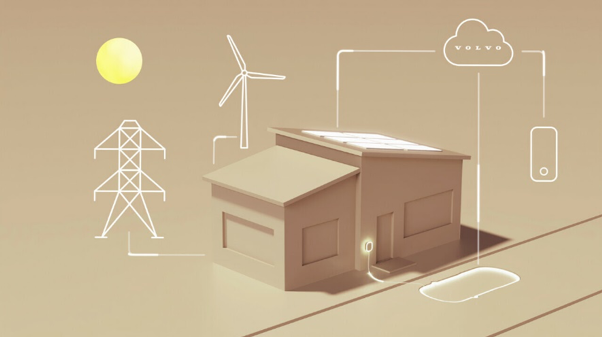Volvo provides a solution to SA's load shedding issues

South Africa – Are you still worried about load shedding and is that putting you off considering an electric vehicle, well worry no more because Volvo has a solution. If you drive a Volvo, then you may soon be free of the load-shedding worries and that is because some Volvo models will include bi-directional charging that can power a home as well as electric devices. The first such Volvo is the fully electric EX90, which is due to be revealed on November 9.
With bi-directional charging, electric vehicles might potentially ease this burden while plugged in and, when combined with many other electric vehicles, can act as a virtual power plant. According to Volvo, the EX90 will have smart-charging features (using the Volvo Cars smartphone app) that will enable drivers to charge their vehicles at times when the grid's demand is low and store that energy for use at a later time. Obviously "Later" might refer to the beginning of load shedding.’
Bi-directional charging, which will initially only be available in a selected few markets, has the potential to reduce cost, increase efficiency, and improve the sustainability of energy use. Practically speaking, the Volvo EX90 could run any device in a home during load shedding, including power equipment and a music system.
Your car will eventually have the capacity to help out and provide some of its charge to other compatible Volvos, in addition to being able to charge appliances and other devices. On the other hand, if your battery is close to running out, don't panic cos other Volvo vehicles can offer you the same assistance as well.
Where available, the Volvo Cars app's smart charging feature will control the entire charging procedure automatically. The underlying algorithm also ensures that you only partially charge and fully discharge the battery, minimising the chance of needless battery deterioration.
Bi-directional charging might potentially enable users to contribute to the grid in various ways, according to the regulations unique to each energy market. This can entail increasing energy intake during periods of renewable energy surplus or selling energy back during periods of peak demand. If most cars in the future have this capability, the grid might be more frequently balanced. Decreasing potential energy waste from renewable sources during periods when output outperforms demand, this could improve the grid's overall sustainability.
Volvo has stated that local clients will be informed when South Africa is one of those selected markets to have bi-directional charging.
